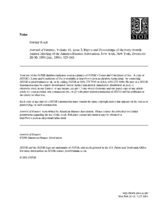Framing, Re-Framing, and Perspective Taking
Podcast, featuring Kenneth Cukier
His most recent book: Framers: Human Advantage in an Age of Technology and Turmoil
Stuart Hall at the inaugural Karl Marx Memorial Lecture, Sheffield, 1983. Source, youtube.
Reading/reframing Marx as an Entrepreneur?
"The communism that he looks forward to in the commune and elsewhere is a communism of self-disciplining and self-organizing human beings as human beings who have come into the Mastery of their own situation as human beings who see in the objective world they’re able to produce in their labour and relationships are proper and not a distorted image of their humanity. It’s a fantastic vision that Marx has, which just as a side and a side that means it has nothing whatever to do with the current psychological notions of alienation. Marx’s alienation is not a hang up inside, it’s the lack of a relationship with the objective world. It is that we don’t possess that world we have all built together in an open interchange. It’s not inside. It may be that we are alienated inside because we don’t have that objective relationship, but Marx is not about feeling good in our heads, it’s about holding on to the worlds, but having the world at our disposal is reading of human history is that we have been disposed of by history." (Stuart Hall)


